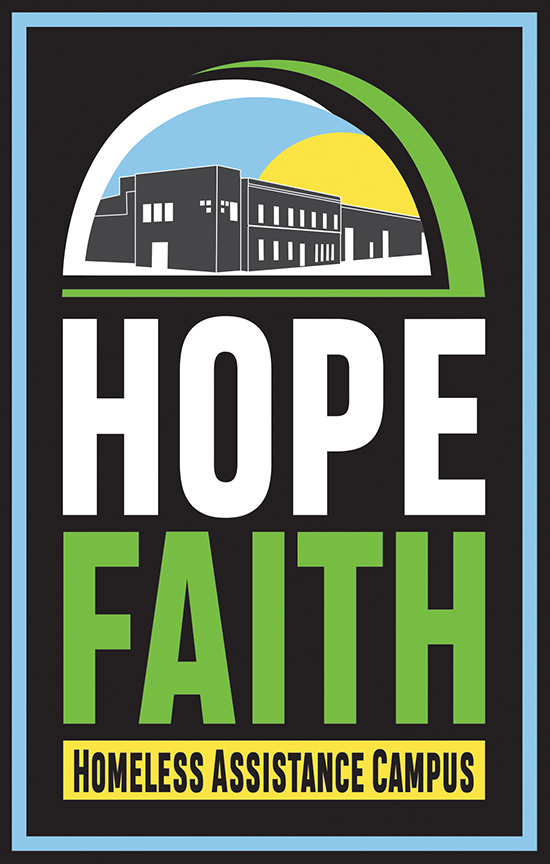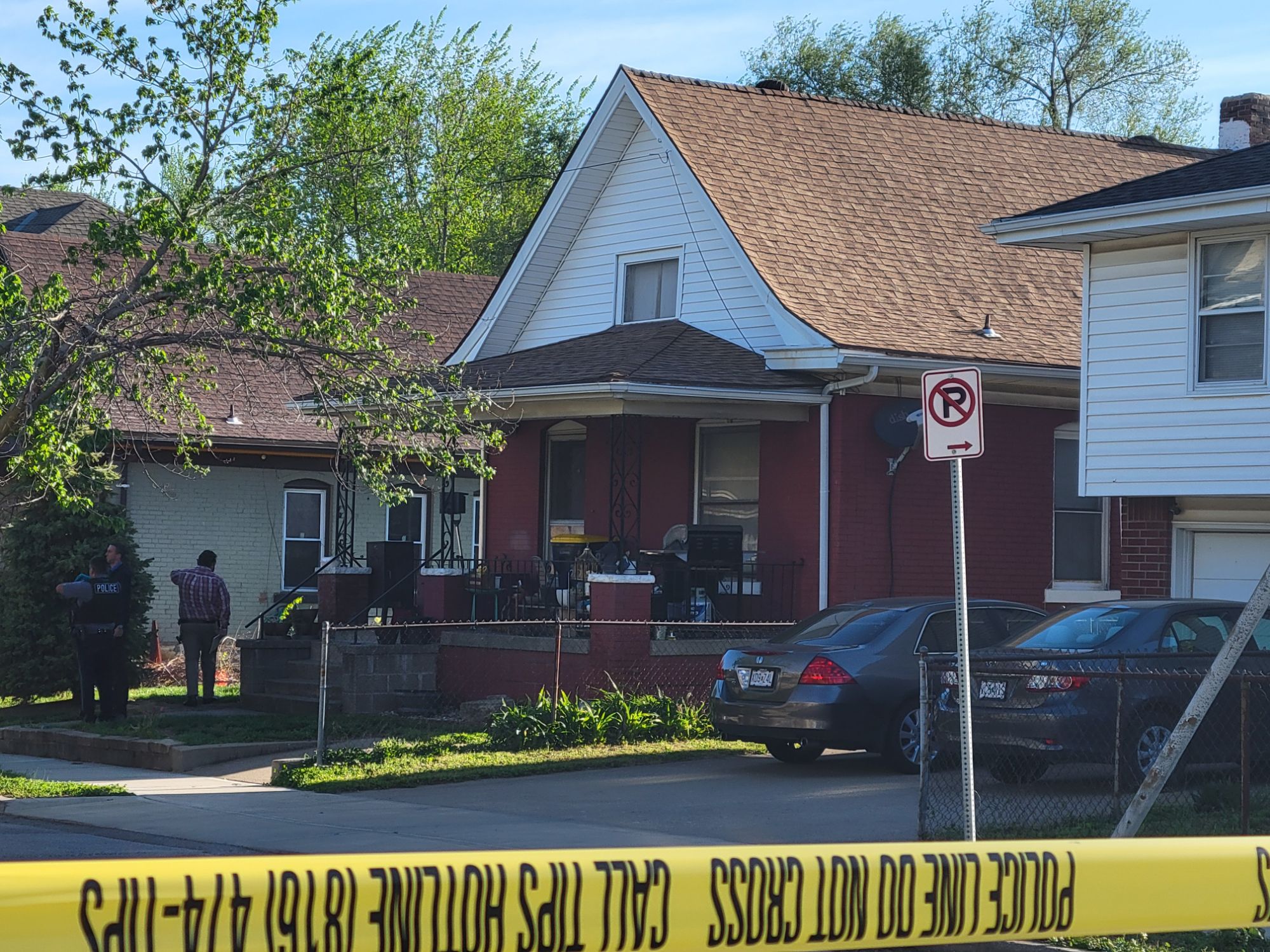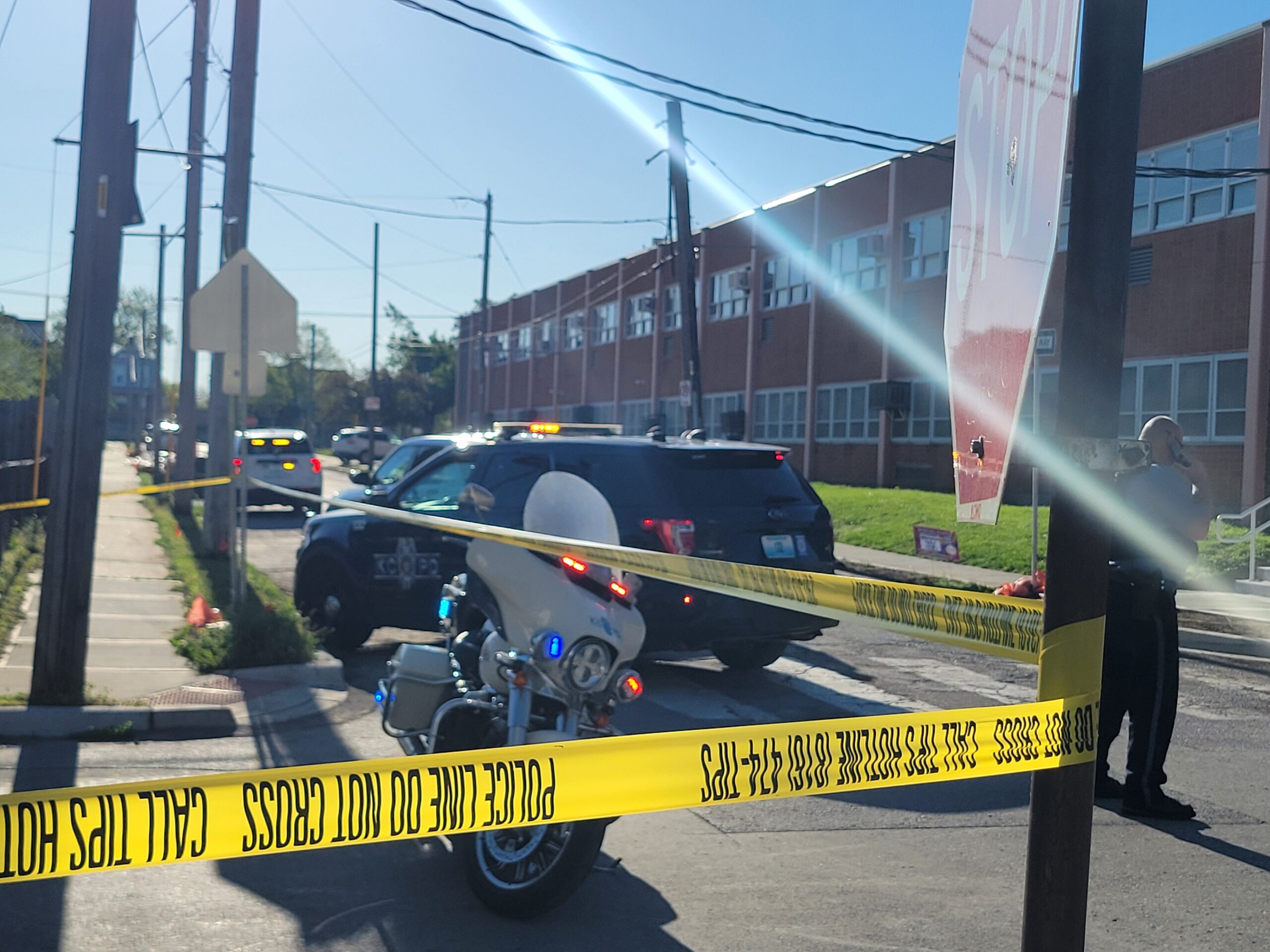
Abby Hoover
Managing Editor
Hope Faith Homeless Assistance Campus at 705 Virginia Ave. is preparing for winter in Kansas City as rates of homeless continue to rise and funding remains tight for the already understaffed agency.
Last week, Hope Faith withdrew its initial plan submitted in response to the City’s Request for Proposals (RFP) for a winter preparedness plan for the unhoused. Jaysen Van Sickle, Executive Director of Hope Faith, said the offer from the City wasn’t enough to expand services successfully – adding caseworkers, long-term support structures and financial assistance – for all Hope Faith’s clients.
The now withdrawn proposal was to install approximately 30 Pallet “tiny homes” on Virginia Street in front of Hope Faith in partnership with Merging KC. The transitional housing project proposed 24-hour security, food, bathrooms, water and laundry on-site, wraparound services and employment assistance. When the proposal was presented by City staff to Council, it was budgeted at $1 million.
“If you were to look at the RFP we submitted to the City, it was a pretty substantial RFP that was in the millions, and over $1.5 million of that ask was actually for financial assistance for those we were going to help,” Van Sickle said. “I cannot in good conscience put something up and then not have the means to move them forward.”
Van Sickle, who sits on the City’s Houseless Task Force, said Hope Faith is still in talks with the City about how to best support the city-wide effort, but for now, the Pallet homes Merging KC planned to put outside the campus are on hold, and they’re headed back to the drawing board.
“I want to be a good steward of any monies we get, so if you’re going to give me this money, I want to make sure that I don’t have to look at another human being and go, ‘I’m sorry, that’s all I’ve got,’” Van Sickle said. “It came down to just, I didn’t realize the balance was so low and we wanted to make sure that the so-called million dollars that we were supposed to be receiving for this project would actually go for immediate support.”
Van Sickle said Hope Faith doesn’t receive federal, state or county funding for its services. It does get occasional support from the City for specific programs. For now, the agency will remain a daytime center, providing essential services like food, showers, clothing, laundry service and case management. Through on-site partners, Hope Faith provides medical, dental and vision care.
Hope Faith has one case worker for every 150 clients. Van Sickle said the ratio should be more like one for each 25 clients.
“I feel like there’s days where we’re washing off the bandaid and then putting it back on because we just do not have the depth of human capital to help every single person coming to our doorstep, and it’s nothing that we’ve done financially that has caused this problem, just the volume has increased,” Van Sickle said.
Last year, at the height of COVID-19 and during a brutally cold winter, the City opened up an emergency cold weather shelter at Bartle Hall Convention Center, and funded stays in hotels for months.
It can be hard to quantify how much the need has risen, with recent Point in Time counts ranging from 1,500 to 3,000 estimated unhoused people in the Kansas City metro. In January 2021, Hope Faith was serving 4,500 meals per month. Now, they’re serving 15,000. Inhabited tents have been set up right outside Hope Faith, and along nearby streets like The Paseo, Admiral Boulevard, and in Belvidere Park.
“If you drive by Hope Faith right now, there’s probably 20 or 30 tents just camped right outside our gate,” Van Sickle said. “I think a lot of the general ask is, you know, we need to do vulnerability assessments, we need to also put a roof over their heads for those who want it, but one of the things that’s missing in this community is what we call long-term case support managers.”
Once Hope Faith helps clients get housing vouchers to get into an apartment, he said they still need support. Without someone advocating for and supporting clients during this transition, they often become homeless again within the first few months.
“They got you into your apartment, they gave you furniture, but they didn’t show you how to survive,” Van Sickle said.
With a rise in multi-generational homelessness, Van Sickle said it’s more important than ever to teach their clients domestic skills – grocery shopping, laundry, appliances, even using a bathroom properly – before they get set out on their own.
“At the end of the day, we do need operational capital, but what would be that success ratio if we truly had one case worker or navigator per 20 people?” Van Sickle said. “We’d be able to map more success because we’d be able to provide more concierge services and walk people through every step, but then once they get to that voucher line, handing them to a long-term caseworker who’s going to stand by them for the next 12 months.”
Throughout this next season, Van Sickle said they will focus on the human capital deficiency, and supporting the staff who have been tested and overworked throughout the pandemic. Nonprofits are experiencing burnout in the fast-paced, overloaded industry, in a similar way to nursing and other medical professions recently.
“These social workers, these case managers, these people who have helped navigate other people’s lives for the last two years during a pandemic – all the while sacrificing their work-life balance for their fellow Kansas Citians – are hitting a level of exhaustion where reminding themselves why they do it is not enough,” Van Sickle said. “I’ve heard from other agencies, ‘We’ve now accepted the fact that help is never coming,’ and that’s a really unfortunate way to feel.”
When they talk about a winter plan, Hope Faith’s conversations are all about how they can stock up to help as many people as possible, get them connected to shelters, transitional or permanent housing. Hope Faith offers free transportation, the Hope Bus, to area shelters and other services.
“There’s enough shelter beds, but at the end of the day it comes down to the rules and regulations of each shelter,” Van Sickle said, adding that Hope Faith has no restrictions in an effort to create zero barriers, but does impose an expectation of respect. “We have caseworkers and not cops on our busses, we’re trying to do everything we can to remove every barrier so we build that trust, that stability and then work with them every step of the way,” Van Sickle said. “It’s humans helping humans, that’s what Hope Faith is for. We’re helping our fellow human beings, we’re helping our fellow Kansas Citians. We’re going to be the best steward of any dollar you give us, but it takes a lot of money to be a good steward.”
More information on Hope Faith’s services can be found at hopefaith.org.


















